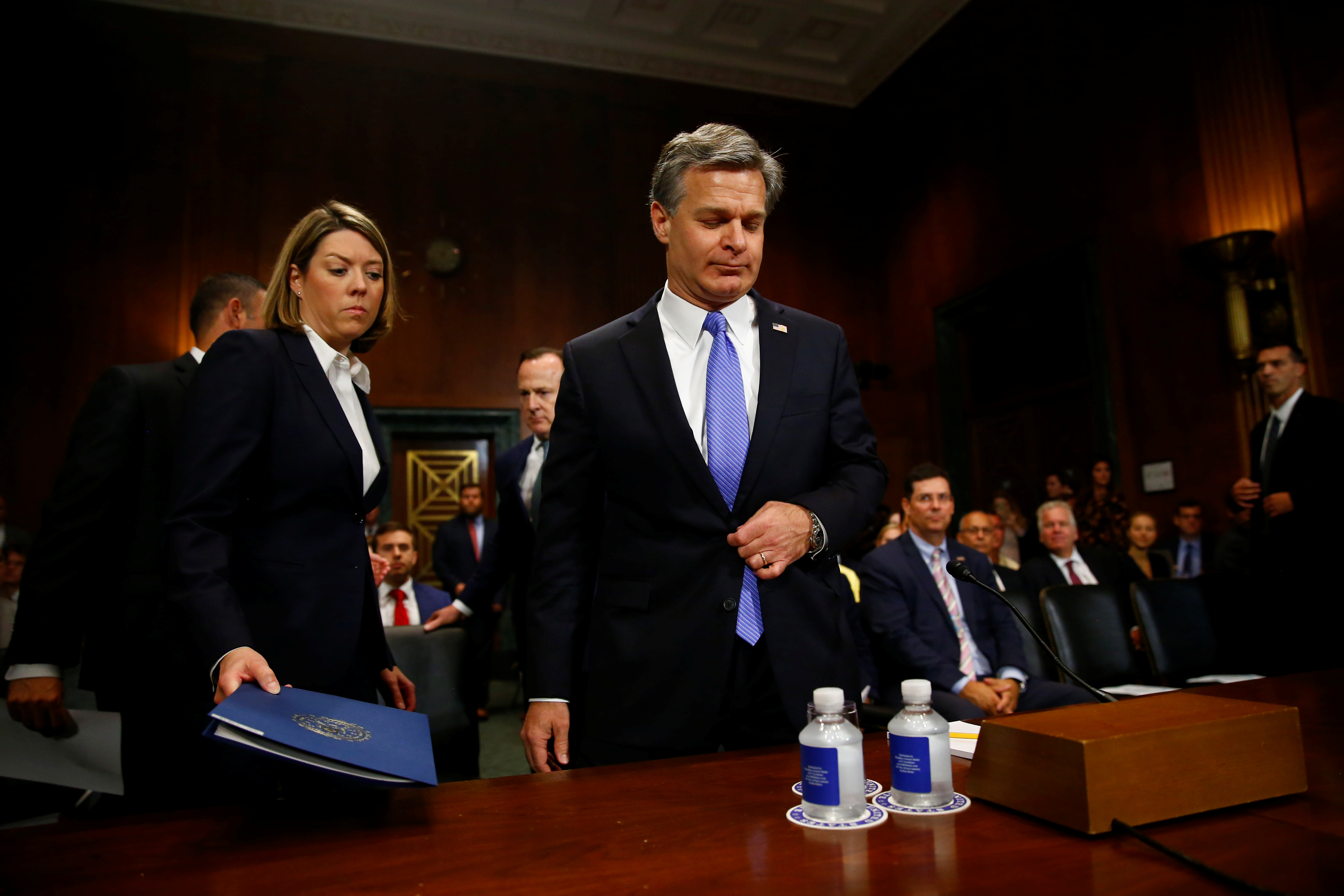FBI Director Christopher Wray arrives to testify before a Senate Judiciary Committee hearing on “Oversight of the Federal Bureau of Investigation” on Capitol Hill in Washington, U.S., July 23, 2019. REUTERS/Eric Thayer

By Doina Chiacu
WASHINGTON (Reuters) – Russia is determined to interfere in U.S. elections despite sanctions and other efforts to deter such actions before the next presidential election in 2020, FBI Director Christopher Wray said on Tuesday.
“The Russians are absolutely intent on trying to interfere with our elections,” Wray said during a Senate Judiciary Committee hearing.
Wray appeared at an oversight hearing a day before Robert Mueller, the former special counsel, was due to testify publicly before Congress about his two-year investigation of Russian interference to sway the 2016 presidential race toward President Donald Trump.
“Everything we’ve done against Russia has not deterred them enough?” asked Senator Lindsey Graham, the Republican committee chairman. “All the sanctions, all the talk, they’re still at it?”
“Yes. My view is until they stop they haven’t been deterred enough,” Wray responded.
Mueller’s investigation disclosed an elaborate campaign of hacking and propaganda during the 2016 presidential race and resulted in indictments that charged 25 Russian individuals and three Russian companies.
The United States has imposed election-related sanctions on Russian oligarchs and military intelligence officials and there is a push for legislation threatening tougher sanctions in the U.S. Congress.
As Wray confirmed the Russia threat remains, Senate Democrats criticised Republican Majority Leader Mitch McConnell for not taking up election security legislation. McConnell has said enough money was set aside for security last year and there was no need for extra measures.
“We have been warned in closed sessions about the Russian plans to corrupt this next election and they’re very specific,” Senator Richard Durbin said at a news conference. “What are we doing about it? The answer is: Nothing. The reason: Mitch McConnell.”
The Russia investigation cast a shadow over Trump’s White House tenure and the president has repeatedly downplayed the Kremlin’s role in trying to help him win. At last year’s summit with Russian President Vladimir Putin in Helsinki, he sided with Moscow over U.S. intelligence agencies.
In his most recent meeting with the Russian leader, in June, Trump appeared to make light of the issue, wagging his finger at the laughing Russian leader as he said, “Don’t meddle in the election, please.”
Senator Amy Klobuchar, who is seeking the 2020 Democratic presidential nomination, criticized Trump for joking about the issue.
“Have you personally briefed the president about these threats,” she asked Wray.
“We have had a number of meetings with others in the (White House) National Security Council,” to discuss Russian efforts to interfere with the elections, he replied.
Wray includes efforts to interfere in U.S. elections in a broader category of foreign influence campaigns in which foreign governments attempt to affect U.S. political sentiment or discourse.
He told the Council of Foreign Relations in April that he viewed the 2018 congressional elections as a “dress rehearsal for the big show in 2020.”
Wray told senators the FBI was working with private sector platforms about “different forms of foreign influence messaging, whether it’s propaganda and fake news.”
At the Democrats’ news conference, Senate Intelligence Committee Vice Chairman Mark Warner urged the Republican-led chamber to help states protect voting and referred to a brief public statement Mueller made in May about the investigation.
“He started and ended his comments saying the Russians attacked us, and they will be back and America needs to be better protected,” Warner said.
(Reporting by Doina Chiacu; Editing by Steve Orlofsky, Tom Brown and Dan Grebler)
Copyright 2018 Thomson Reuters. Click for Restrictions.


